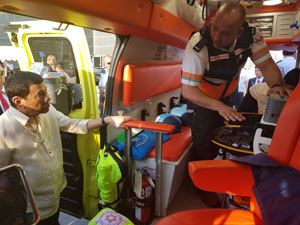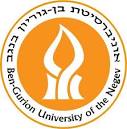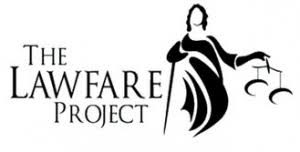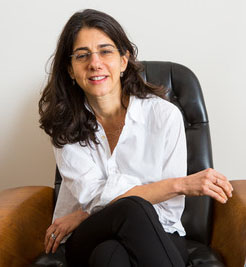Paraguay reverses self; moves Embassy from Jerusalem back to Tel Aviv

The American Jewish Committee expressed deep disappointment over Paraguay’s decision to close its recently opened embassy in Jerusalem and return it to Tel Aviv.
“This diplomatic reversal is shocking,” said Dina Siegel Vann, AJC Director of Latino and Latin American Affairs. “Paraguay has long been a leader among Latin American nations in advancing cooperative relations with Israel. Opening the Paraguayan Embassy in Jerusalem was indicative of that support. To suddenly reverse the historic decision less than four months later raises a number of questions, including who exerted pressure on Paraguay to do so. It cannot be a coincidence that as Paraguay announces this decision, the Palestinian Authority celebrates and declares it will open an ‘embassy’ in Asunción.”
On May 21, Paraguay became the third country, following the United States and Guatemala, to open its embassy in Israel’s capital.
Paraguay President Horacio Cartes, who came to Israel to dedicate the new embassy, said at the ceremony that moving the embassy to Jerusalem “is just the right thing to do.” From American Jewish Committee
Philippines President Duterte tours Magen David Adom operation in Jerusalem

Philippine President Rodrigo Duterte, in a tour of Magen David Adom in Jerusalem, witnessed a mass casualty drill and toured the MDA operations center.
MDA and the Philippine Red Cross have been working closely together since Typhoon Haiyan (Yolanda) struck the Philippines five years ago. As part of this cooperation, MDA personnel have trained Filipino Red Cross personnel on Israeli methods for certifying emergency medics as medical instructors and teaching them how the MDA copes with mass casualty events.
The President showed interest in how MDA responds to mass casualty event. The MDA discussed with the President such issues as response during the first minutes of a terrorist attack, and particularly arena management, collaborative work with the police sappers, triage, treatment and rapid removal of victims from the scene of the attack in order to allow other security forces to perform their job.
Duterte later commented, “I was deeply impressed by what I have seen and by your ability with regards to handling emergency events and in saving lives. We have much to learn from you. I am thrilled to announce that by November, the city of Manila will be networked with the MDA operating system – the results of a productive long-standing cooperation.” — From Magen David Adom
*
Skirball to host conference on art looted by the Nazis
 Cypress LLP and Sotheby’s Institute of Art are co-presenting a Sept. 26 conference, “Righting a Wrong: The Future of Nazi Looted Art Recovery in the US and Abroad” at the Skirball Cultural Center in Los Angeles.
Cypress LLP and Sotheby’s Institute of Art are co-presenting a Sept. 26 conference, “Righting a Wrong: The Future of Nazi Looted Art Recovery in the US and Abroad” at the Skirball Cultural Center in Los Angeles.
Uncovering these lost treasures is often a slow path with no systematic approach, sometimes never reaching a resolution. The process includes researching and sorting through hundreds of thousands of documents, letters, and photographs in order to properly verify ownership. In many cases, these pieces are the last remnant of a loved one or many loved ones who were lost during the tragic events of the Holocaust. The process can be emotional and distressing, with provenance of a piece being difficult to trace throughout the dark years of hiding in undocumented locations. More than 20,000 pieces of art, including masterpieces by Klimt, Matisse, Monet and Picasso, were stolen and often displayed before being burned or entering the illegal markets. Even after the fall of Nazi Germany, many descendents of the Nazi looters kept the art in secret to later sell or display in private collections.
The panels are as follows:
- Finding and Recovering Nazi Looted Art — Eyal Dolev, Provenance Researcher (Tel Aviv); Simon Goodman, Author ‘The Orpheus Clock’ (Los Angeles); Professor Jonathan Petropolous, Claremont McKenna College, Author of ‘The Faustian Bargain: The Art World in Nazi Germany’ (Los Angeles); Moderator: Richard Aronowitz-Mercer, Head of Restitution, Europe Sotheby’s (London)
- Bringing Claims–Laurence Eisenstein, Partner, Eisenstein Malanchuk LLP (Washington D.C.); Lothar Fremy, Partner, Rosbach & Fremy (Berlin); Nicholas O’Donnell, Partner, Sullivan & Worcester LLP (Boston); Thaddeus Stauber, Partner, Nixon Peabody LLP (Los Angeles); Moderator: Mark Labaton, Partner, Cypress LLP (Los Angeles)
- What Can Museums Do? — Stephen Clark, General Counsel, Vice President, Getty Institute (Los Angeles); Simon Frankel, Partner, Covington & Burling LLP (San Francisco); Jutta von Falkenhausen, Attorney (Germany); Moderator: Bob Muller, Partner, Cypress LLP (Los Angeles)
- What Can the Art Market Do? — René Gimpel, Art Dealer (London); Lucian Simmons, Senior Vice President, Provenance and Restitution, Sotheby’s (New York); Isabel von Klitzing, Provenance Researcher (Germany); Moderator: Daniel McClean, Partner, Cypress LLP (Los Angeles)
For full details and registration information, please visit the conference website http://nazistolenart.com –From Cypress LLP
*
Congress sends to President Trump legislation to protect religious institutions
 The American Jewish Committee (AJC) saluted U.S Senate adoption Tuesday night of the Protecting Religiously Affiliated Institutions Act of 2018. The House of Representatives adopted a similar measure in December.
The American Jewish Committee (AJC) saluted U.S Senate adoption Tuesday night of the Protecting Religiously Affiliated Institutions Act of 2018. The House of Representatives adopted a similar measure in December.
“The increasing attacks and threats against churches, synagogues, and mosques disgrace our nation’s most fundamental values,” said Jason Isaacson, AJC Associate Executive Director for Policy. “This important legislation, which we ask President Trump to sign into law promptly, provides for new and strengthened measures to deter, as well as punish, perpetrators of attacks on religious institutions.”
AJC thanked Senator Orrin Hatch, former chair of the Judiciary Committee, and Ranking Member Senator Diane Feinstein for their leadership in shepherding the legislation to adoption.
According to the latest FBI report, issued in 2017, hate crimes increased by 4.6 percent in 2016 compared to 2015. Anti-Jewish incidents continue to account for the majority of religious-based hate crimes, while incidents targeting Muslims rose nearly 20 percent over 2015.
The Protecting Religiously Affiliated Institutions Act of 2018 builds on the Church Arson Prevention Act of 1996, expanding it to include religiously affiliated institutions such as schools and community centers, in addition to houses of worship. It clarifies that threats against, as well as acts that result in damage or destruction of, religious institutions’ property are covered.
“Freedom to exercise religion, to practice one’s faith unhindered and without fear, is enshrined in the U.S. Constitution. This important legislation will provide a much-needed sense of comfort and security,” Isaacson said. — From American Jewish Committee
*
Israeli institutions develop technology for more precise monitoring of blood flow in critically ill patients
 Researchers at Ben-Gurion University of the Negev (BGU), Hadassah Medical Center and Cincinnati Children’s Hospital Medical Center(CCH)have developed a new lifesaving monitoring technology called VitalMiner that predicts hemodynamic instability episodes in intensive care patients.
Researchers at Ben-Gurion University of the Negev (BGU), Hadassah Medical Center and Cincinnati Children’s Hospital Medical Center(CCH)have developed a new lifesaving monitoring technology called VitalMiner that predicts hemodynamic instability episodes in intensive care patients.
Hemodynamic instability in blood pressure, particularly hypotension, is considered one of the most critical events that requires prompt and effective intensive care unit (ICU) intervention. Hemodynamically unstable patients do not have enough pressure in the circulatory system to keep blood flowing reliably to all parts of the body at the same time, which can lead to organ failure. Once patients become unstable, treatment is much more difficult, with an increased chance of morbidity or mortality.
VitalMiner monitors real-time vital signs and applies advanced algorithms to predict impending hemodynamic instability episodes (e.g. hemorrhagic shock) before they appear, which is a critical intervention window for maximum success.
This software can connect either locally or remotely to clinical information systems and vital signs monitors in a broad range of settings, including civilian and military ICUs, emergency rooms, intensive care transports (mobile, fixed and rotatory wing), and home intensive care services.
The software was developed by Prof. Mark Last of the BGU Department of Software and Information Systems Engineering, in collaboration with Prof. Victor F. Garcia M.D., founding director of Trauma Services at CCH and professor of surgery and pediatrics at the University of Cincinnati College of Medicine, and Prof. Raphael Udassin in the Pediatric Surgery Department of Hadassah University Hospital. — From Ben Gurion University of the Negev
*
Lawfare Project, UK Lawyers for Israel, file complaint against ‘War on Want’ group
 The Lawfare Project and UK Lawyers for Israel (UKLFI) have filed a complaint to the Charity Commission for England and Wales against the UK registered charity War on Want.
The Lawfare Project and UK Lawyers for Israel (UKLFI) have filed a complaint to the Charity Commission for England and Wales against the UK registered charity War on Want.
The complaint outlines allegations that the War on Want is linked to terrorist organizations, including the Popular Front for the Liberation of Palestine (PFLP). It also alleges that the organization has misused charitable funds for the production and dissemination of political propaganda and published false and misleading allegations likely to result in racial hatred of Jews and Israel.
The complaint describes the War on Want as engaging in “dog-whistle fundraising” by misleading donors with falsehoods regarding “Palestinian Territories” and exploiting ignorance and prejudice against Israel. It alleges that this undermines public trust and confidence in War on Want and brings the charitable sector into disrepute. — From the Lawfare Project
*
Amy Bach awarded the Charles Bronfman Prize

The Charles Bronfman Prize announced its 2018 recipient: Amy Bach, Founder, Executive Director and President of Measures for Justice (MFJ), the first organization to publicly measure how the entire criminal justice system is performing in all counties across the United States by collecting, analyzing and comparing county-level data.
[Amy Bach, Founder, Executive Director and President of Measures for Justice, is 2018 recipient of The Charles Bronfman Prize.]
“Amy’s work revealed a critical gap in our criminal justice system, and she developed an ingenious method for filling it,” Charles Bronfman said. “She epitomizes the concern for social justice and entrepreneurial spirit that the Prize recognizes. I am delighted the judges selected Amy.”
The Charles Bronfman Prize is an annual award of $100,000 presented to a humanitarian under 50 whose innovative work informed by Jewish values has significantly improved the world. The Prize was founded in 2004 by Ellen Bronfman Hauptman and Stephen Bronfman, with their spouses, Andrew Hauptman and Claudine Blondin Bronfman, to honor their father, Charles Bronfman, on his 70th birthday.
“The Prize is privileged to recognize Amy’s groundbreaking work to address injustices experienced in the criminal justice system,” said Ellen Bronfman Hauptman on behalf of the founders. “She will make an outstanding addition to an already exceptional group of Prize laureates.”
“I am honored to be recognized by the Charles Bronfman Prize, which will go a long way toward bringing to light the importance of open data and criminal justice data collection at the county level,” Bach said. “So many lives are impacted by the criminal justice system every day. We need make visible what is otherwise hidden. I am thrilled to see this work in the spotlight.”
The U.S. leads the industrialized world in incarceration, with only five percent of the world’s population but nearly a quarter of the prison population. Yet, its justice system lacks the fundamental data to determine whether spending is reducing crime, improving fairness or lessening repeat offenders. MFJ’s solution is to supply legislators, practitioners, change makers, everyone with the facts.
“The way you treat the vulnerable in society is how that society will be judged,” noted Justice Rosalie Silberman Abella of the Supreme Court of Canada on behalf of the Prize’s international panel of judges. “Prison impacts some of the most disadvantaged. Amy’s initiatives go toward taking care of people who can’t take care of themselves, addressing universal issues of poverty, race, indigenous populations, the undereducated.” — From the Charles Bronfman Prize organization
*
Amcha Initiative makes its ‘Anti-Semitism Tracker’ available to the public
 AMCHA Initiative on Wednesday launched its new ‘Anti-Semitism Tracker’ with a powerful and user-friendly search engine that will provide the public with unprecedented access to information and photo documentation about anti-Semitic incidents that occurred on campus between 2015-2018. AMCHA is the only organization that makes its database of all reported incidents of campus anti-Semitism accessible to the public.
AMCHA Initiative on Wednesday launched its new ‘Anti-Semitism Tracker’ with a powerful and user-friendly search engine that will provide the public with unprecedented access to information and photo documentation about anti-Semitic incidents that occurred on campus between 2015-2018. AMCHA is the only organization that makes its database of all reported incidents of campus anti-Semitism accessible to the public.
Using the website’s new search engines, users will be able to tailor a search by city, state, zip code, geographical region, year, date range, university, and category. Some of the incident categories include physical assault, discrimination, destruction of Jewish property, genocidal expression, suppression of speech/movement/assembly, verbal assault, intimidation, harassment, condoning terrorism, comparing Jews to Nazis, and accusing Jews of inventing or exaggerating the Holocaust. Users can also search and run customized reports by keyword, such as “swastika.”
One category of the search engine is solely devoted to chronicling BDS activity, allowing users to easily access BDS events, divestment votes, event shut downs and disruptions, as well as to locate faculty who have signed publicly-accessible petitions calling for an academic boycott of Israel.
“An important part of AMCHA’s mission is to document and expose incidents of campus anti-Semitism and make this information easily and readily available to the public,” stated AMCHA’s director, Tammi Rossman-Benjamin. “We hope our new searchable databases will make it easier for parents, students, alumni, researchers, journalists and anyone in the community to access the information they are looking for.”
AMCHA also unveiled new photo and video libraries where colleague organizations, the public, authors, publishers and journalists can access, and republish, photo and video documentation of recent incidents. In addition, through the new webpage, students will be able to submit photos and videos of the anti-Semitism they witness in real time.
“Today every student has ready access to a camera on their phone,” added Rossman-Benjamin. “They will now have the opportunity to take a more active role in documenting and exposing the anti-Semitism they witness.”
AMCHA monitors more than 400 college campuses across the U.S. for anti-Semitic activity, and recorded 468 known anti-Semitic incidents in 2015, 642 in 2016, 653 in 2017, and 394 so far in 2018. — From AMCHA Initiative
*
Civil Rights group seeks records of Gilroy schools’ interactions with Muslim groups
 The Freedom of Conscience Defense Fund (FCDF) on Wednesday sent a public records request to the Gilroy Unified School District, demanding emails that could reveal whether the school district violated the Constitution by allowing two Muslim groups to proselytize to students at school assemblies.
The Freedom of Conscience Defense Fund (FCDF) on Wednesday sent a public records request to the Gilroy Unified School District, demanding emails that could reveal whether the school district violated the Constitution by allowing two Muslim groups to proselytize to students at school assemblies.
Last year, a Muslim high school student complained to school officials she was bullied after Donald Trump got elected and that she was offended by a class assignment that included a Fox News op-ed. After school board members met with the student’s family, the district engaged in “great partnerships” with the Islamic Networks Group (ING) and the Council on American-Islamic Relations (CAIR) to conduct “Islamophobia” presentations and lecture students at school assemblies about Islam.
Both the California and U.S. Constitutions prohibit the government from aiding religious sects or favoring one religious organization over another. Courts have repeatedly held that students suffer spiritual and psychological harm if they are exposed to religious indoctrination in a compulsive educational environment.
“When school districts allow sectarian groups to advance their agendas under the guise of ‘promoting tolerance,’ they place political correctness over the spiritual and psychological well-being of their schoolchildren,” said Daniel Piedra, FCDF’s executive director. “The First Amendment forbids CAIR’s calculated effort to indoctrinate students in the name of ‘diversity’ and ‘inclusion.’”
Nihad Awad, CAIR’s National Executive Director, testified that “informing the American public about the Islamic faith is a religious obligation,” and the purpose of its “Islamophobia” public school programs is to “create a religious educational environment.” In addition, despite portraying itself as a mainstream Muslim organization, evidence confirms that CAIR was founded by members of Hamas and the Muslim Brotherhood. Indeed, the United Arab Emirates officially designates CAIR as a terrorist organization. CAIR is also notorious in the American Muslim community for demonizing and attacking progressive Muslim organizations that seek to work with government officials to combat Islamic radicalism in the U.S. The Anti-Defamation League has denounced CAIR for its anti-Semitic advocacy.
The records request asks for all emails between school officials and ING and CAIR since Donald Trump’s election. The district has ten days to respond. Failure to respond, respond completely, or respond in a prompt manner would violate California state law and prompt further action.
Elsewhere, FCDF is representing five San Diego families in a federal civil rights lawsuit challenging the constitutionality of the San Diego Unified School District’s partnership with CAIR to implement an “anti-Islamophobia initiative,” which singles out Muslim students for special protections and empowers CAIR to revise school curriculum to ensure it portrays Islam in a more “inclusive” light. — — From Freedom of Conscience Defense Fund
*
Preceding articles culled from news releases. Send yours to editor@sdjewishworld.com